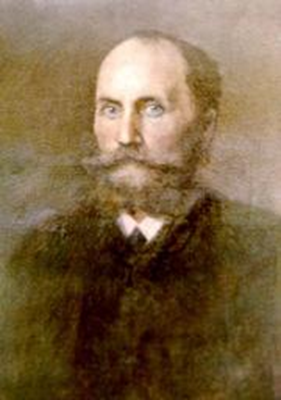Proust, memory, and death
In a famous passage, Proust not only comes back to the ground-breaking involuntary
memories which paved the way for his entire narrative; remarkably, he connects
them with death:
It seems as if what the
narrator calls the ”unconscious recognition” of a past moment in the present
for the first time in his life illumines death for the narrator. It does
so by removing his worries or uncertainties (inquiétudes). Memory takes
away uncertainty, both the uncertainty about “my death” and the “vicissitudes
of the future”. My death will no longer belong to the vicissitudes of the
future, because my death – one could say – does not belong to the future anymore,
nor to its “vicissitudes”.
Proust
continues as follows:
“But let a sound, a scent already heard and
breathed in the past be heard and breathed anew, simultaneously in the present
and in the past, real without being actual, ideal without being abstract, then
instantly the permanent and characteristic essence hidden in things is freed [se
trouve libérée] and our true being
which has for long seemed dead but was not so in other ways awakes and revives,
thanks to this celestial nourishment [notre vrai moi qui parfois
depuis longtemps, semblait mort, mais ne l’était pas autrement, s’éveille,
s’anime en recevant la céleste nourriture qui lui est apportée]. An instant
liberated [affranchie] from the order of time has recreated in us man
liberated [affranchi] from the same order, so that he should be
conscious of it [pour la sentir]. And
indeed we understand his faith in his happiness even if the mere taste of a
madeleine does not logically seem to justify it; we understand that the name of
death is meaningless to him [le mot de ‘mort’ n'ait pas de sens pour lui];
placed beyond time, how can he fear the future?”[1]
Our “true being”, Proust says, which used to be hidden in death is
resuscitated. This resuscitation is consequent upon repetition (‘seriality’)
and recognition. It is as if repetition indicates insistence or even perseverance
of what was hitherto neglected or overlooked, a conatus in suo esse
perseverare (Spinoza) of the ordinary and yet essential; an insistence of
the ordinary as the essential. What looked like death is animated by
memory – a memory which is itself accelerated by a single stimulus (‘the mere
taste of a madeleine”).
 To him whose memory has been triggered in a similar way
(i.e., enabling the apparently inanimate to revive), the word ‘death’ will have
no meaning or direction (sens) anymore. ‘Death’ loses its meaning of
being an always imminent, precarious future, it stops designating future
imminence or vicissitudes. Because ‘death’ becomes meaningless, death becomes
insignificant. Death is drained by memory, to the point of being absorbed by
it. If memory, or subliminality, is enhanced at death, at the expense of
the meaning of death, death and enhanced subliminality may start to
become mutually implicative.
To him whose memory has been triggered in a similar way
(i.e., enabling the apparently inanimate to revive), the word ‘death’ will have
no meaning or direction (sens) anymore. ‘Death’ loses its meaning of
being an always imminent, precarious future, it stops designating future
imminence or vicissitudes. Because ‘death’ becomes meaningless, death becomes
insignificant. Death is drained by memory, to the point of being absorbed by
it. If memory, or subliminality, is enhanced at death, at the expense of
the meaning of death, death and enhanced subliminality may start to
become mutually implicative.
[1] M. Proust, Le temps
retrouvé (Time Re-gained, trans. Stephen
Hudson, slightly modified by author, RS).



Reacties
Een reactie posten